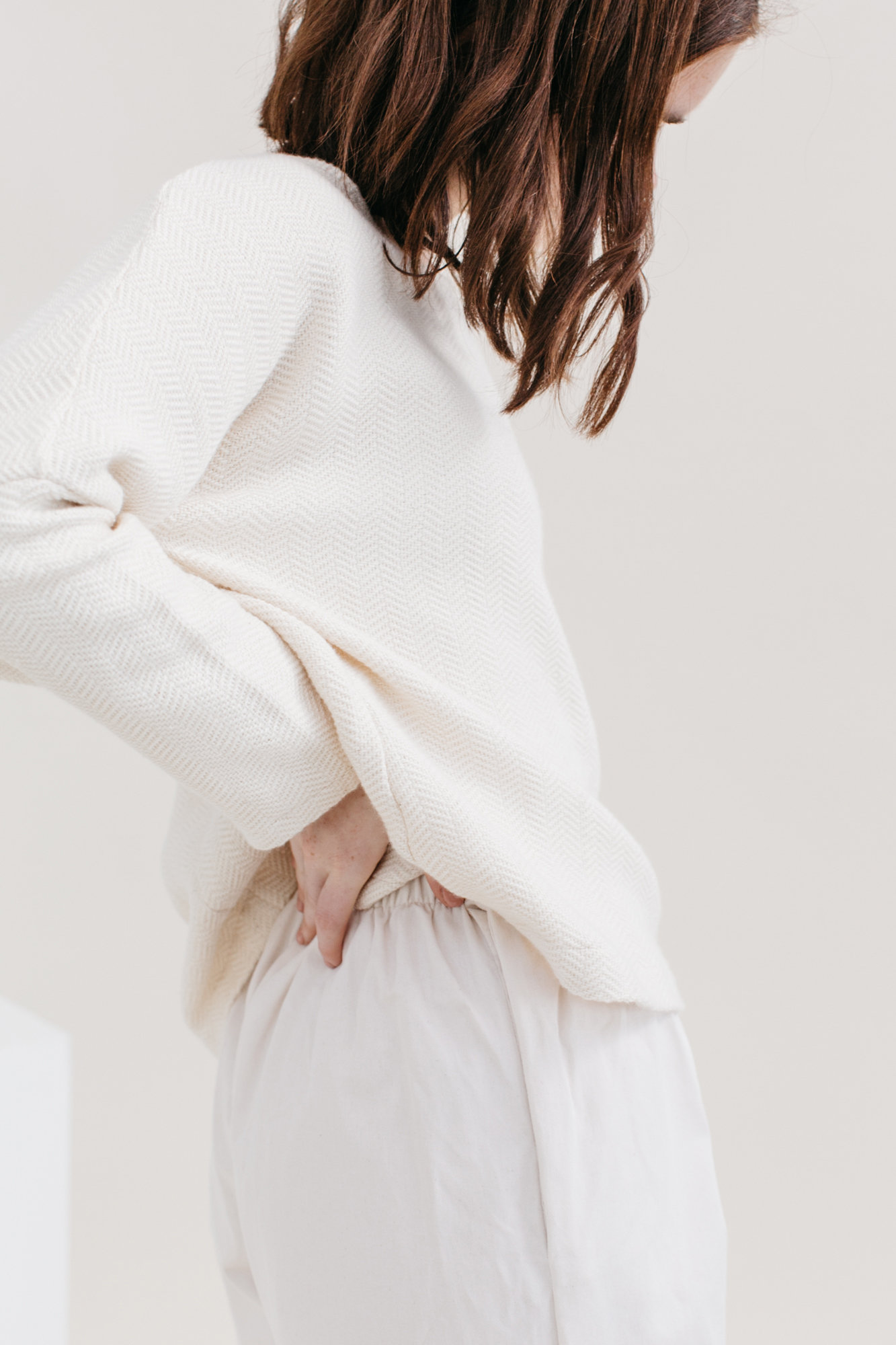
By: Morgan Wagstaff
Within the last decade, and more rapidly in the last two years, there has been a lot of talk about our clothes and the impact they are having on our lives, our planet, and the well-being of those designing and making garments. There has been a movement towards simpler, better quality clothes and less of them. Coined as “slow fashion,” it’s reflective of a movement of people who want to literally slow down and encourages slower production schedules, fair wages, and a lower carbon footprint.
There are a few reasons consumers are jumping on the bandwagon and saying no to fast fashion and cheap clothes. For starters, the apparel industry is the second largest polluter in the world, second only to oil. The production process is a complicated one involving long and varied supply chains, raw materials, textile manufacturing, clothing construction, shipping, retail, use and the inevitable disposal of the garment. The pesticides used in cotton farming, the toxic dyes used in manufacturing, the great amount of waste discarded clothing creates, the extravagant amount of natural resources used in extraction, farming, harvesting, processing, manufacturing and shipping are only a few of the ways the shirts on our backs are harming our planet.
Synthetic fibers, such as polyester, can take up to two hundred years to breakdown and decompose as compared to natural fibers, such as linen, which takes as little as two weeks. While cotton might seem like a smart choice, it can still take thousands of gallons of water to manufacture just a t-shirt and a pair of jeans. Synthetic, man-made fibers, while not as water-intensive, raise questions of manufacturing pollution and sustainability, and across all textiles, the manufacturing and dyeing of fabrics is chemically intensive.
More than 60 percent of our clothing is manufactured in developing countries such as Bangladesh, India, Vietnam, and Pakistan. There is little transparency as to the conditions of the factories these items are being made in. Because retailers are demanding lower and lower prices from these manufacturers, the factories are forced to squeeze their costs, hamper their workers, and are cutting corners and disregarding safety measures.
It has become an out of sight, out of mind mentality for retailers, and they have turned a blind eye to the lives of the workers in these factories. The conditions of these facilities have fallen to such a level that they have become detrimental to the health and wellness of these workers. More than just the conditions, the owners are being forced to pay their employees unfair wages to keep up with the demand of reducing costs.
Now, all of this can seem insurmountable and almost overwhelming, but there are actions we can take today to help aid the recovery of this industry we are all entwined with. It starts with changing small things.
First, we can educate ourselves on where and by whom our products are being made. This pushes us to shift our mindset on what we wear and purchase. You can do this by checking your tags and visiting www.fashionrevolution.org. By demanding transparency from the brands we support, we are holding them to a standard to make sure the human rights of garment workers are respected and that the negative environmental effects aren’t being sidelined.
There are also a plethora of clothing companies that are addressing these issues and offering alternatives. By supporting small local businesses we are helping them to thrive by creating greater awareness of every step of the process, thus promoting smarter choices. Thrifting is also a great way to shop ethically. When we give something pre-loved another chance, we are reducing the demand for fast fashion while simultaneously reducing waste.
And of course we can also just live simpler. Living with less helps to take a stand on the demand we’re necessitating from these factories and workers. We are connected! What we buy and where our money goes absolutely matters – to the people around the world and to the environment. Where we spend our money communicates our values in the marketplace. We get to choose what type of marketplace and world we want to support: opportunity and freedom, or the opposite.
About the author: Morgan Wagstaff is the owner and designer behind Two Fold, an environmentally and socially conscious womenswear brand aiming to change the way we think about, purchase, and manufacture our clothing. Two Fold’s first collection has launched through Kickstarter and aims to make getting dressed each morning easier with timeless, minimalist styles that fit perfectly into any wardrobe. Morgan is passionate about helping women see their true beauty and feeling confident in what they wear.


